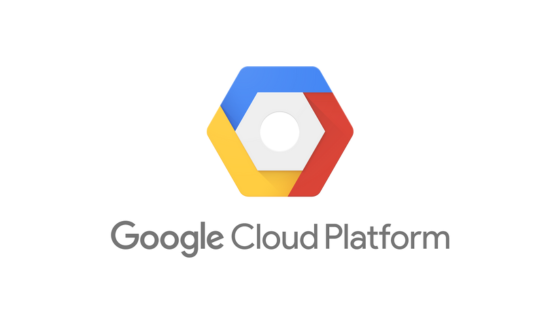Google Cloud Platform: What is it and how does it work?

Before the existence of Google Cloud Platform, companies and organizations had to manage their own physical data centers, meaning a physical location, to host servers, store data, and run applications. This required investing in costly infrastructure, such as servers, disk storage, and networking equipment, as well as technical staff to maintain and manage these systems.
Additionally, the process of scaling resources to meet demand was slow and expensive. Companies had to acquire additional hardware and configure new servers, which involved significant capital expenses and implementation time.
Another challenge was the security and availability of data. Companies had to implement physical and logical security measures to protect their data centers from intrusions and failures, as well as perform data backups and recovery to ensure the availability and integrity of information.
Google Cloud Platform (GCP) was created to provide a highly scalable, reliable, and secure cloud computing infrastructure that meets the needs of businesses of all sizes and sectors.
This platform was developed with the intention of facilitating innovation, providing companies and developers with the necessary tools to quickly and efficiently create new applications and services in the cloud.
Furthermore, the platform aims to foster collaboration and improve the productivity of development teams by offering tools that simplify the creation, deployment, and management of cloud applications.
This diversity of services is designed to provide companies with the flexibility they need to implement solutions that adapt to their specific requirements.
What is Google Cloud Platform?
Google Cloud Platform (GCP) is a set of cloud computing services offered by Google. It provides infrastructure and tools that enable businesses and developers to create, deploy, and scale applications, websites, and services on an infrastructure managed by Google.
GCP is a cloud computing solution that offers a space with servers hosting over 100 products and services, allowing companies to achieve more efficient management and comprehensive digital security.
Moreover, Google Cloud comprises a combination of physical resources, such as computers and hard drives, and virtual resources, such as virtual machines (VMs), located in globally distributed data centers. These data centers are situated in various regions, and this distribution of resources offers several benefits, such as redundancy in case of failures and lower latency due to the proximity of resources to customers.
Utility of Google Cloud Platform
Google Cloud Platform (GCP) is useful for a wide variety of applications and use cases, offering numerous advantages to businesses and developers. Here are some of its main utilities:
1. Scalability and Flexibility
Elastic Computing: Allows resources to be scaled up or down flexibly and in real-time, depending on demand and other set factors.
Diverse Services: GCP offers a wide range of services and tools that can meet various computing requirements of its users.
2. Data Storage and Management
Secure and Durable Storage: Services like Google Cloud Storage and managed databases such as Cloud SQL and Bigtable enable efficient and secure storage and management of large volumes of data.
Big Data and Analytics: Tools like BigQuery facilitate the real-time analysis of large datasets.
3. Application Development and Deployment
Platform as a Service (PaaS): Google App Engine allows the development and deployment of applications without worrying about infrastructure management.
Container Deployment: Google Kubernetes Engine simplifies the management of containerized applications.
4. Artificial Intelligence and Machine Learning
Machine Learning Models: AI Platform allows the development, training, and deployment of machine learning models.
AI APIs: Services like Cloud Vision API and Cloud Natural Language API provide advanced image recognition and text analysis capabilities.
5. Redundancy and Disaster Recovery
High Availability: GCP's distributed infrastructure ensures redundancy and high availability of services.
Rapid Recovery: In case of failures, services can be configured to recover quickly thanks to the distribution of data and applications across multiple regions and zones.
6. Security
Compliance and Certifications: GCP complies with numerous global security certifications.
Data Protection: Advanced tools for encrypting data in transit and at rest.
7. Cost Reduction
Pay-As-You-Go Model: Allows businesses to pay only for the resources they use, optimizing costs.
Sustained Use Discounts: Offers automatic discounts for workloads that run for extended periods.
8. Collaboration and Productivity
Integration with Google Tools: Services like Google Workspace integrate with GCP, facilitating collaboration and productivity.
9. Continuous Innovation
Access to Cutting-Edge Technology: Google continues to develop and improve its services, providing access to the latest innovations in cloud technology.
Google Cloud Platform is a powerful and versatile platform that helps businesses and developers create, manage, and scale applications and services efficiently and securely, while optimizing costs and enhancing availability and performance.
Advantages and Disadvantages
Google Cloud Platform offers a variety of advantages and disadvantages that should be considered when choosing a cloud computing solution. Here are some of the main advantages and disadvantages of GCP:
Advantages
Scalability: GCP offers a highly scalable infrastructure that allows businesses to quickly and efficiently scale resources up or down according to demand.
Wide Range of Services: It provides a broad array of services, from computing to storage, databases, data analytics, artificial intelligence, and more, enabling businesses to find solutions for a variety of needs.
High-Speed Global Network: Google's network infrastructure ensures fast and reliable connectivity between GCP services and end-users worldwide.
Security: GCP offers robust security measures and compliance, including data encryption, access control, and threat protection, helping to safeguard users' sensitive data.
Continuous Innovation: Google constantly invests in research and development, allowing GCP to offer cutting-edge features and services to meet the evolving demands of the market.
Disadvantages
Learning Curve: For some users, GCP can have a steep learning curve, especially for those unfamiliar with the platform or cloud computing in general.
Variable Costs: While GCP offers a pay-as-you-go model that can be cost-effective for many businesses, costs can be variable and difficult to predict, especially for fluctuating workloads.
Vendor Lock-In: Using GCP may lead to dependency on a single cloud service provider, which can pose risks in terms of flexibility and data portability.
Limited Customization: Some users may find that GCP provides less granularity in configuration controls and customization options compared to other providers. This can range from network settings to storage options or virtual machine adjustments.
Google Cloud Platform offers a wide range of advantages, including scalability, a diverse array of services, security, and continuous innovation. However, it also has potential disadvantages, such as a steep learning curve and variable costs. It is important for businesses to carefully evaluate these advantages and disadvantages when considering the use of GCP for their cloud computing needs.
Main Products and Services of Google Cloud Platform
Google Cloud Platform offers a wide range of products and services that cover various cloud computing needs. Here are the main ones:
Google Compute Engine
Description: Provides scalable, high-performance virtual machines (VMs) running on Google’s infrastructure.
Utility: Ideal for running applications and compute-intensive workloads. It allows resource adjustment according to needs, providing flexibility and efficiency.
Google Cloud Storage
Description: Secure and durable object storage service for unstructured data.
Utility: Perfect for storing large volumes of data, such as backup files, multimedia content, and data files. Offers high availability and global redundancy.
Google App Engine
Description: Platform as a Service (PaaS) that allows the development and hosting of web and mobile applications without managing the underlying infrastructure.
Utility: Facilitates rapid deployment and automatic scaling of applications. Ideal for developers focusing on code and application functionality without worrying about infrastructure.
Google Cloud Run
Description: Serverless computing service that allows developers to deploy and run containerized applications.
Utility: Provides flexibility, automatic scaling, and simplicity in the deployment and management of containerized applications.
Google Cloud Functions
Description: Serverless computing service that allows developers to execute code automatically and scalably in response to events.
Utility: Offers flexibility, automatic scaling, integration with other Google Cloud services, and a billing model based on usage.
Google Cloud SQL
Description: Fully managed relational database service compatible with MySQL, PostgreSQL, and SQL Server.
Utility: Provides a robust and scalable relational database with advanced security and recovery features. Suitable for applications requiring a traditional SQL database.
Google BigQuery
Description: Serverless and highly scalable data analysis service that allows SQL queries on large datasets.
Utility: Ideal for real-time analysis of large volumes of data. Enables businesses to gain quick insights and perform complex analyses without managing storage or data processing infrastructure.
These products and services are fundamental to Google Cloud Platform, offering robust and scalable solutions for various business and development needs.
Architecture of Google Cloud Platform
The architecture of Google Cloud Platform (GCP) is composed of several key elements that work together to deliver cloud computing services efficiently and reliably. Here are some important aspects of GCP's architecture:
Cloud Computing
Services and Resources: GCP provides a wide variety of computing, storage, networking, database, artificial intelligence, and other services, enabling users to build, deploy, and scale applications and services in the cloud.
Deployment Models: GCP supports deployment models such as Infrastructure as a Service (IaaS), Platform as a Service (PaaS), and Software as a Service (SaaS), allowing users to choose the level of control and responsibility they want over their infrastructure and applications.
Data Centers
Global Infrastructure: GCP operates a network of globally distributed data centers in regions and zones, allowing users to run applications and store data close to their end users to minimize latency and improve performance.
Own Fiber Optic Network: Google uses its own high-speed fiber optic network to connect its data centers worldwide, ensuring high performance and reliability in communications between services and users.
Content Delivery Network (CDN)
Google Cloud CDN: GCP offers a content delivery network (CDN) service that uses Google's global infrastructure to efficiently distribute web and video content to end users.
Distributed Cache: The CDN caches static and dynamic content in locations close to end users, reducing latency and improving performance by delivering content more quickly and reliably.
The architecture of GCP is designed to provide a scalable, reliable, and secure cloud infrastructure that meets the needs of a wide variety of online applications and workloads. GCP's services and resources are closely integrated with Google's global infrastructure to offer optimal performance and a superior user experience.
Companies Using Google Cloud Platform
Google Cloud Platform (GCP) is suitable for companies of all sizes, from startups to large corporations, offering scalable pricing and services that can be customized to meet each company's needs. This makes it accessible to everyone.
Here are some companies that are clients of Google Cloud Platform:
1. Spotify
Industry: Entertainment (Music Streaming).
Uses GCP for: Data storage and analysis, as well as running its applications and services.
2. PayPal
Industry: Finance and online payments.
Uses GCP for: Managing its payment processing infrastructure and data storage.
3. Twitter
Industry: Social media and microblogging.
Uses GCP for: Data storage and analysis, as well as running critical services and applications.
4. HSBC
Industry: Financial services.
Uses GCP for: Data storage and processing, as well as developing and deploying online banking applications.
5. Bloomberg
Industry: Finance and media.
Uses GCP for: Financial data storage and analysis, as well as running online news applications and services.
6. Domino's Pizza
Industry: Food and delivery services.
Uses GCP for: Managing online operations, including order processing and food delivery.
7. eBay
Industry: E-commerce.
Uses GCP for: Data storage and analysis, as well as running e-commerce applications and services.
8. Ubisoft
Industry: Video games.
Uses GCP for: Online game development and infrastructure services for multiplayer games.
9. Home Depot
Industry: Retail (DIY and home improvement).
Uses GCP for: Data storage and analysis, as well as managing its e-commerce infrastructure.
These are just a few of the many companies that rely on Google Cloud Platform to power their operations and online services.
In recent years, the adoption of GCP in Mexico has grown rapidly, driven by Google's expansion in the region and the increasing demand for cloud services. It has been gaining traction among large Mexican companies looking to innovate and digitize their operations through cloud solutions.
Google Cloud Platform distinguishes itself from the competition with its focus on artificial intelligence and machine learning, offering advanced services like BigQuery for data analysis and TensorFlow for machine learning models. Additionally, GCP emphasizes innovation and operational simplicity, with a high-performance global infrastructure.
In summary, Google Cloud Platform is a powerful and versatile platform that helps businesses and developers create, manage, and scale applications and services efficiently and securely, while optimizing costs and improving availability and performance.


